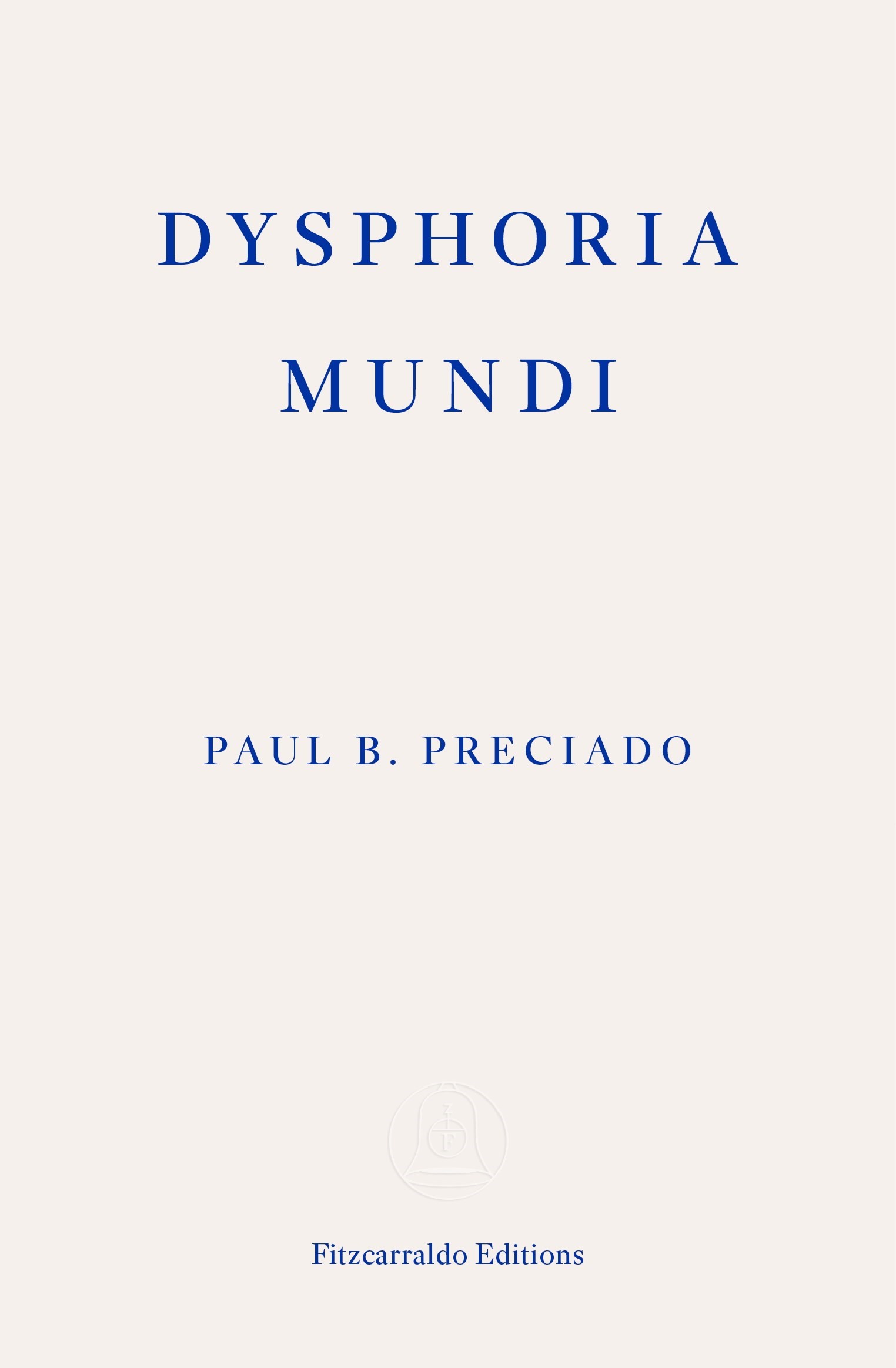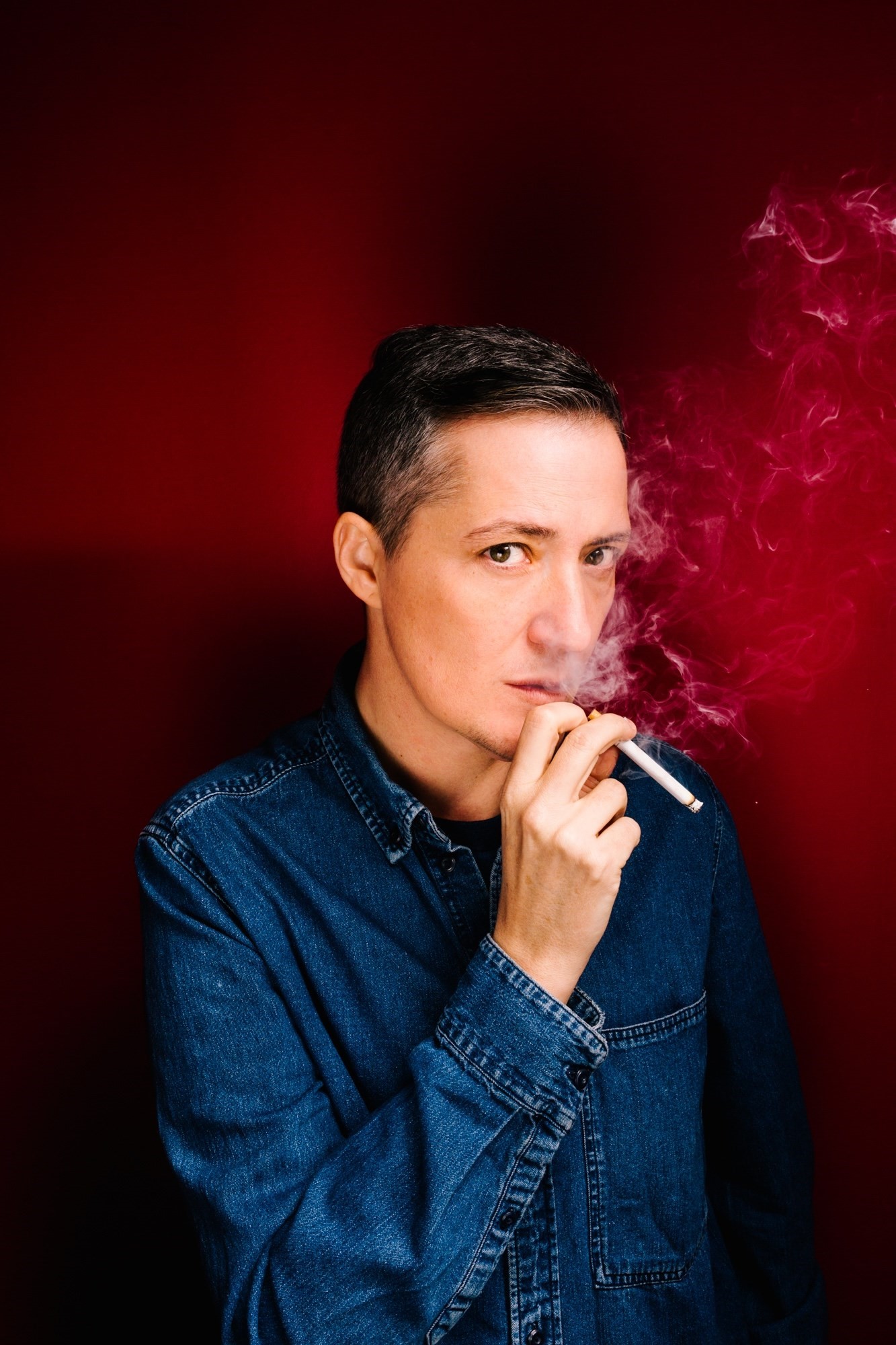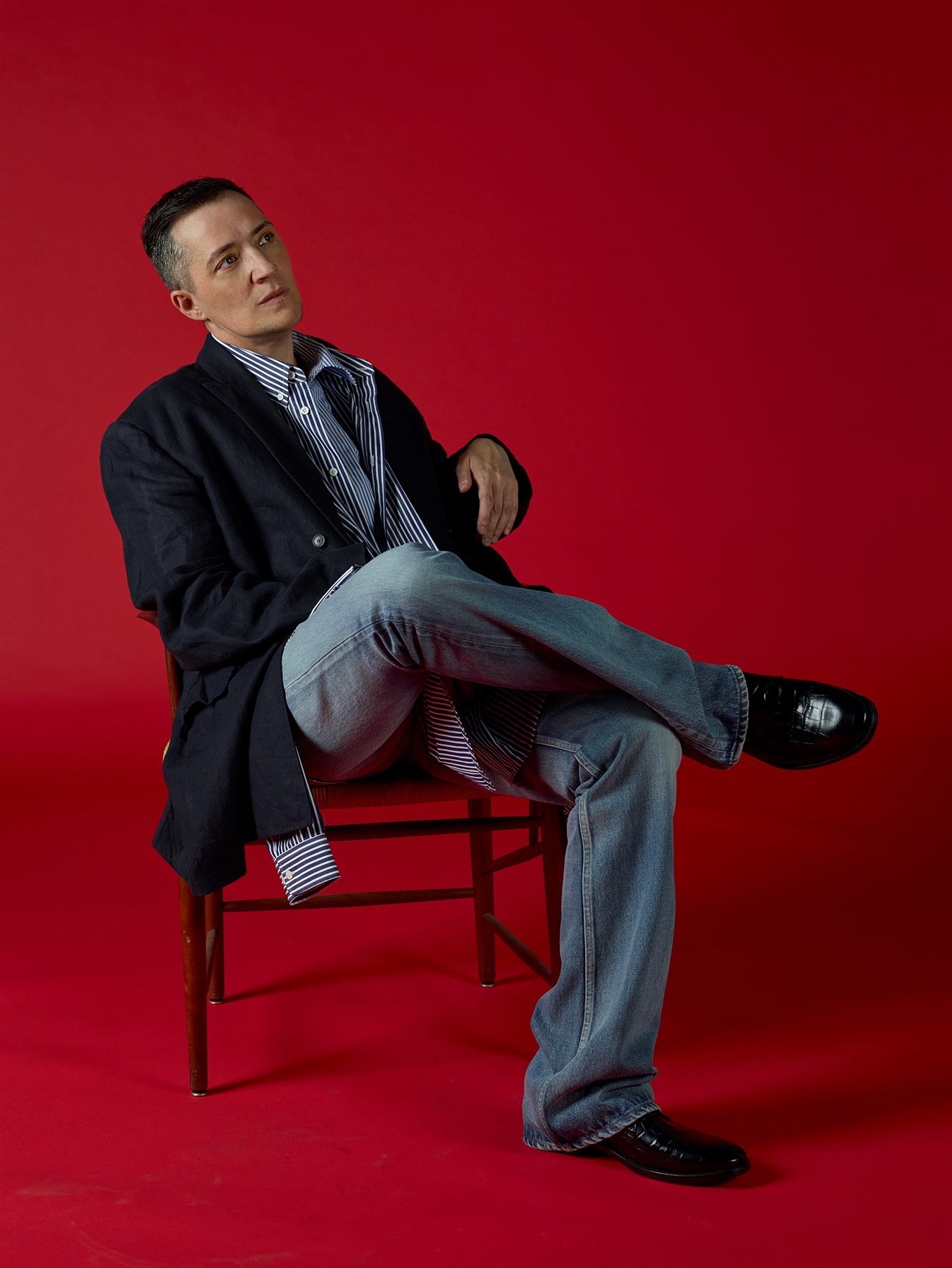Paul B Preciado is many things. Among them, radical philosopher and queer theorist, writer known for a love of lengthy terminology and interviewee famed for insightful-but-tangential answers. Through his practice – which spans and dissolves boundaries between disciplines, languages and genders – he questions the “unquestionable” binaries that shape our world.
Building on ideas explored in Testo Junkie and An Apartment on Uranus, cult classics that broke new ground in authotheory – a genre that merges autobiography with theoretical analysis – while charting a life in transition, Preciado’s latest book uses gender dysphoria as a lens to view our rapidly changing world. In Dysphoria Mundi, which translates roughly to “world-weariness”, he reframes dysphoria not as individual pathology but as a collective condition – one that signals the collapse of patriarchal, colonial and capitalist regimes and the possibility of a radically different future.
Preciado began this “mutant” manifesto in 2020, when – sick with Covid and confined to his apartment – he decided to document the dysphoric present. His reflections from this time form the central narrative of this fragmentary and unconventional work, in which philosophical enquiries collide with William S Burroughs on the psychoactive plant peyote, the history and intersection of structures of power, funeral prayers and practices of revolution.
Following editions in Spanish and French, Dysphoria Mundi arrives in English at a pertinent time: politics have never been weirder or the world more out of joint. Ahead of publication day, we spoke to Paul B Preciado about the revolutionary hypothesis at the heart of this book, and how to retain hope in an age of collapse.

Rosie Flanagan: The book opens with a medical report that details your diagnosis of gender dysphoria. You go on to frame dysphoria not as a pathology, but as a condition that exposes the instability of systems of power. How did you come to see dysphoria as a force for revolutionary change?
Paul B. Preciado: I wanted to open the book with this psychiatric diagnosis to underline the paradoxical status of the philosophical and political practice today: to speak with the very same voice that has been undermined by medical and normative discourses and to claim a sort of truth value when thinking from this position. What would have happened if Foucault had opened The History of Sexuality saying that he was what the society of his time called a “homosexual”? Let’s remember that when the first volume was published in 1975, it was illegal to be a professor if you were gay. The question is always how those who have been denied full sovereignty and recognition as humans or citizens in a certain epistemic and political regime can invest in the languages and transform the technologies of power that have been used to disenfranchise them, so that they can reclaim emancipation and full political recognition.
The sex-gender binary regime can only be fully understood and dismantled by the dysphoric, the gender queer. I wanted to stress the epistemic and political force of the dysphoric, or the disabled, of the child, of the migrant, of the stateless. How do you come to believe that you have the right to exist and to be and desire and feel the way you do, in a society that tells you that you are the problem, that you are subaltern, that you are a pathology? Dysphoria is a very painful and passive position when reduced to a psychopathological condition, but it becomes a rich, rhizomatic bundle of critical and active possibilities when thought of as collective epistemic and political dissidence.
“Psychiatric and legal discourses aim to reshape the body, to reorganise gender binaries, to trim our identities, to remodel them, to give them the ‘right’ form” – Paul B Preciado
RF: Written in three languages, with content spanning genres, Dysphoria Mundi is a rhapsodic experiment in language and thought. Do you see form as integral to the political and philosophical project of your writing?
PBP: The form is what allows me to write. In writing about dysphoria, the binary distinction between form and content is at stake: dysphoria is already considered a pathology of form. Our bodies are supposed to have the wrong form, or the other way round, our psyches are said to not fully align with the form of our bodies. Psychiatric and legal discourses aim to reshape the body, to reorganise gender binaries, to trim our identities, to remodel them, to give them the “right” form. In this notion of dysphoria, there is always the question of a “disorder”, as if something can’t fully be controlled or properly arranged according to sex and gender binaries. I wanted to use disorder as a counter-organisational principle.
I don’t know if I fully managed to do it, because writing is very linear, and the book as a technique is historically attached to the practice of economy, of accounting, of law making … so a book might not be the best dysphoric entity. And then the prayers started to punctuate the book, bringing us back to the bodily practice of collective reading, of getting into a state of political trance through repetition. The prayers transform disorder into a ritual.
RF: You frame identity not as a fixed position, but as something shaped and invented by political and technological forces. If identity is always being produced by systems of power, what does it mean to shift from “practices of identity production to practices of freedom”?
PBP: Identity is one of the problems we inherited from the modern patriarchal and colonial taxonomies: hierarchical distinctions between beings, some of whom don’t qualify as human or as having the right to self-govern. One problem of the minority struggles of the 1960s is that they were organised around identities – women, homosexuals, trans, Black – risking part of the movements aligning with conservative, neo-naturalist and authoritarian policies. We saw it during the sex wars, when some feminists aligned with anti-pornography and anti-sex work, and ended up endorsing homophobic and whorephobic measures. Today, anti-trans feminists or TERFs align more closely with Trump’s government than most medical and psychiatric discourses that are more open to debate. For me, one of the questions I ask myself when considering a political measure is: does this produce more identity or more freedom? Whose lives will be affected by it? Who is gaining sovereignty over whom?
A good example of non-identity politics is Aids activism that emerged in the 1980s, which implied a transversal alliance of subaltern groups fighting for survival – drug users, sex workers, queers, the racialised, the chronically ill, the South, etc. I believe this is the model for the future. The challenge now is how to establish large, synthetic alliances that are not based on naturalised identities that create boundaries and hierarchies – to fight for life and how these alliances produce collective freedom.

RF: The book concludes with a letter to future activists, in which you write that it is never too late to embrace revolutionary optimism. At a time when things feel increasingly precarious, how do you remain hopeful?
PBP: Optimism is not a feeling, it is not a psychological emotion. I learned from the elder generation of Black feminists that optimism is a methodology of the oppressed. We can’t afford the luxury of pessimism. And if we look into our histories of resistance, we realise that we have what the oppressors don’t. They have fear and anger, they have power, and they think they can afford denying reality: that they can deny the existence of Palestine as they deny the existence of the Gulf of Mexico; that they can deny the lives of millions of Palestinian people, the existence of migrant lives, non-white lives, intersex babies and trans kids; that they can deny climate change and the effect of fossil fuels on the planet; that they can deny the existence of forms of non-heterosexual love and reproduction.
But we are the new radical realists, we exist. We can be exterminated, but we can’t be denied. Hope comes from the collective struggle, from seeing that we are not alone and that we need each other. We call this relational ontology instead of individualism. So, when you wake up sad in the morning, say to yourself: “relational ontology” and look to engage in collective action – not digitally, but somato-politically.
Dysphoria Mundi by Paul B Preciado is published by Fitzcarraldo Editions, and is out now.
